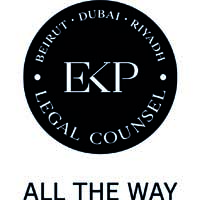An overview of contract law in Saudi Arabia provided by Wissam Hachem and Harry Taylor of Al-Enezee in association with EKP
Saudi Arabia is a jurisdiction becoming ever more intertwined with global markets. Whereas previously the economy began with O and finished with L, we are now witnessing rapid diversification as Saudi drives towards Vision 2030. New ventures are entering the country and attempting to caravan across their English law standard terms and conditions.
While foreign jurisdiction clauses are commonly included, parties should be aware that there is always the possibility that any dispute finds itself in the Saudi courts. In particular, to enforce against assets in Saudi Arabia (KSA), the foreign award must be brought before the Saudi Enforcement Court. While their role is theoretically confined to affecting the recovery of a foreign award, litigants frequently find themselves embroiled in secondary proceedings in KSA. Therefore, it is vitally important to consider the local law, customs and practices when contracting in KSA, irrespective of the choice of governing law or dispute resolution.
This article seeks to summarise key elements that impact any commercial contract in KSA, and the key areas of law that are perhaps divergent from other jurisdictions and must be considered.
1. Parties (private/governmental)
Question: public or private counterparty?
The public sector remains a key player in the Saudi economy. In 2019 Saudi implemented the revised public procurement law applicable to all government entities, and entities with partial government ownership and support. This included ministries, city development authorities and government-owned companies established by royal decree. If the counterparty is a Saudi public entity then the contract will be governed by the public procurement law and a foreign entity should be prepared to receive standard terms with little room for negotiations.
Contracting with private Saudi entities is a different proposition and the parties will be free to negotiate the terms of their agreements. Whilst foreign governing law and dispute resolution clauses are common, as we outlined above, there is always potential for a dispute to arrive in the Saudi courts under local law.
2. Foreign investment law and licensing
Question: is a foreign investment license required?
Generally, a party generating revenue via assets in KSA is required to obtain a foreign investment license from the Ministry of Investment or risks breaching the foreign investment law. Merely selling products or services from abroad is unlikely to require an investment license. Once employees or assets (such as offices or servers) are required in KSA, the foreign party must consider a foreign investment license and other necessary licenses (for example from the Ministry of Health or Communications and Information Technology Commission).
A foreign party must consider their proximity to KSA and if assets are required or services will be provided on the ground in KSA. If a foreign investment license is required, then the structure of the transaction will be materially different compared to simply supplying goods or services from abroad. Prior to contracting, the foreign investment law should be considered between the parties.
3. Shari’ah compliance
Question: is the contract Shari’ah compliant?
Under Saudi law, the service or product exchanged under the contract must be Shari’ah compliant. On this basis, it must not be haram (for example pork, alcohol, and explicit material) nor center on gambling/speculation (maysir) or include the sale of risky assets (gharar). Saudi courts are bound to apply Shari’ah principles whereby there is a requirement for the terms of the contract to be sufficiently clear and for the parties to be in ownership or control of the assets that are promised to be exchanged.
Interest payment (riba) is also a concept that is generally not enforceable in Saudi Arabia. If a party breaches a contract where interest is included, for example interest on late payment, or interest on damages, then the court will usually disregard such provisions when calculating damages. Nevertheless, when structured in a sophisticated manner, increasing late payments can be enforceable.
If any clause is found to be non-Shari’ah compliant, then this does not automatically render the entire agreement unenforceable, and KSA courts will attempt to interpret the terms whilst disregarding the non-compliant provisions.
4. Limitation of liability
Question: is there an attempt to limit liability?
Fairness in dealings is a central Shari’ah principle. Therefore, Saudi courts may discard clauses that limit the liability of the parties, particularly when such clauses create an unfair outcome or have no commercially objective basis. Reliance on limitation clauses must be with caution and the parties should consider the justification for capping their liability.
In calculating damages, Saudi courts will consider direct economic loss which can be evidenced. It is unlikely that indirect, consequential and non-economic loss will be included in calculating damages for breach of contract.
5. Data protection
Question: is personal data exchanged or created?
Saudi Arabia has enacted the Personal Data Protection Law (PDPL) which applies to data protection in KSA irrespective of the choice of governing and may not therefore be excluded. Whilst the parties may attempt to contract under the GDPR or other data protection regime, the terms of the PDPL must be considered if Saudi personal data is collected or exchanged. Significantly, there is very limited means for transferring any personal data outside of KSA and parties must be alert to such incognizant breaches.
6. Taxation
Question: what is the tax liability?
Withholding tax must be considered whenever sums are transferred outside of KSA to an entity without a legal presence in KSA. The rate of withholding tax varies between 5% and 20% depending on the type of product or service and the relationship between the transferor and transferee. The local party is required to declare and make payment of the withholding tax to the Zakat, Customs and Tax Authority (ZACTA) within 10 days of the month-end in which the payment is made.
A foreign company having a legal presence in KSA will be subject to corporation tax at a rate of 20% on the share of the profits owned by the foreign shareholder.
7. Intellectual property rights
Question: are the parties transferring or licensing intellectual property?
The Saudi Authority for Intellectual Property (SAIP) is the authority responsible for intellectual property rights and their registration in Saudi Arabia. Certain protections are only available to parties that have registered their intellectual property with SAIP. Therefore, when using, licensing, or transferring intellectual property rights in Saudi Arabia, we recommend undertaking the necessary registrations with SAIP.
8. Conclusion
In the words of Crown Prince Mohammad Bin Salman, ‘We are a G20 country. One of the biggest world economies. We’re in the middle of three continents. Changing Saudi Arabia for the better means helping the region and changing the world. So this is what we are trying to do here’. As the Saudi Vision 2030 supernova accelerates and gains greater momentum, we expect to see more inward investment, regulatory change, sophisticated markets, and ultimately far more foreign companies requiring legal advice to successfully enter the Saudi market whilst avoiding the unexpected pitfalls.

Wissam Hachem, partner
wissam.hachem@ekplegal.com

Harry Taylor, associate
harry.taylor@ekplegal.com









